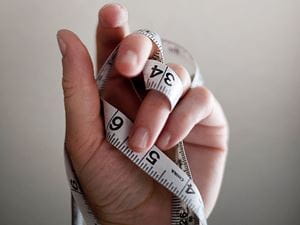
When it comes to what you're having for dinner, overeating, or only eating too many of the wrong foods can lead to significant health issues. On the other side, eating a meal that isn't satisfying can leave you with more to be desired and cause you to want to eat unhealthy snacks right before bedtime. None of these behaviors are helpful to your health and can leave you feeling terrible in the days ahead. This is why it's so crucial that you have a healthy eating routine. This will not only keep the weight off but keep you feeling energized. Here are six dinner habits for weight loss.
Eat Early
Try eating your dinner before 7 pm. A study found that those who eat early are less likely to gain weight than those who eat early. This isn't because you're not burning calories at night. It's generally because you're more tempted to binge after hours. Typically, these foods are high in fat and sugar. These foods will help you add on the pounds and make it harder for you to fall asleep. Remember, getting adequate rest is imperative and will help you lose weight.
Balance Your Plate
Make sure you're building a healthy meal at dinner time. Each meal is a building block to building up a healthy eating style. It would help if you had all the food groups represented: grains, fruits, vegetables, dairy, and protein. Be sure that saturated fats, sodium, and sugars are low. A balanced diet can help you lose weight by increasing your protein intake, getting essential nutrients, and preventing binge eating, among other things. If you're trying to figure out what your plate should look like, half of the plate should be vegetables and fruits. Add a lean protein. Aim to include whole grains, and don't forget dairy or a dairy alternative like soy or almond milk.
Portion Control
Portion control can also be a primary key to losing weight. Make sure you're not filling most of your plate up with steak and potatoes with a corner of spinach. Also, use a smaller plate when you're eating your dinner. Many people feel just as full when they eat from a smaller dish than a large one. Evidence suggests that the sizes of spoons, plates, and glasses can unconsciously influence how much someone eats. You can package the leftovers for a meal the next day. When you properly portion, you find yourself less hungry, so there's less of a desire to keep getting up and getting additional plates of food.
It's important to remember that depriving yourself can also lead to overeating. This is why some experts recommend indulging in "fun" food every so often.
"In order to avoid late-night snacking and cravings, it is important to include some fun foods (or what one may perceive as off-limits) every once in a while," said Katheryn Riner, a pediatric dietitian and founder of Healthy Kids Nutrition. "Meaning, if we always order the healthiest thing on the menu but come home and graze on chips, perhaps we really wanted the burger and should have just enjoyed it in the first place."
Drink Water Before and After the Meal
It would help if you considered drinking water 30 minutes before a meal to assist with digestion. It also makes you feel fuller which will help you to not overeat at dinnertime. Research supports this. One study found that adults who drink water right before eating lost more weight than those who didn't. If you choose to finish off a glass of water before eating your meal, it may cause you to feel soon. Other studies have found that sipping slows down your eating speed, which makes you eat less overall. Don't drink too soon before or after a meal. Doing this can dilute the digestive juices. Drink water an hour after your meal to help the body absorb the nutrients of the meal. Drinking water is always a good thing.
Make Sure Your Meal Timing is Right
Some studies show that eating your largest meal of the day later in the evening, instead of during the day, can increase cardiometabolic risk factors. Therefore, the timing of meals and snacks is so important. Consider fitting these meals in within 10 to 12 hours. Many people eat between 6 am and 6 pm, which can help promote weight loss and decrease cardiovascular risk. Instead of making dinner your largest meal of the day, consider making breakfast that meal. Remember, breakfast gives you the necessary fuel.
Fiber at Dinner Time
According to USCF Health, the recommended amount of daily fiber is between 25 to 29 grams. The study found that those who consumed more dietary fiber each day had a lower body weight. They also had lower cholesterol and blood pressure on average. If you're not consuming this much fiber at dinner time, it might be time to consider bumping up your intake. This number may seem like it's too high to reach, but many foods are naturally high in fiber that you probably don't even realize are. These often include fruits, vegetables, and unrefined grains. Eating these every day can help you reach your daily fiber goals. If you have lacked during the day, make sure that they are packed in at dinner time. Many good, high-fiber recipes can help you reach your fiber goals.
Your eating habits, especially around dinner time, can make or break you. We must make sure we're consuming the right things, so we are properly fueled. The better we eat at dinner time, the better we will feel when we sleep and wake up early in the morning. If you're not implementing any of these habits, consider trying them now. They will really pay off in the long run.

